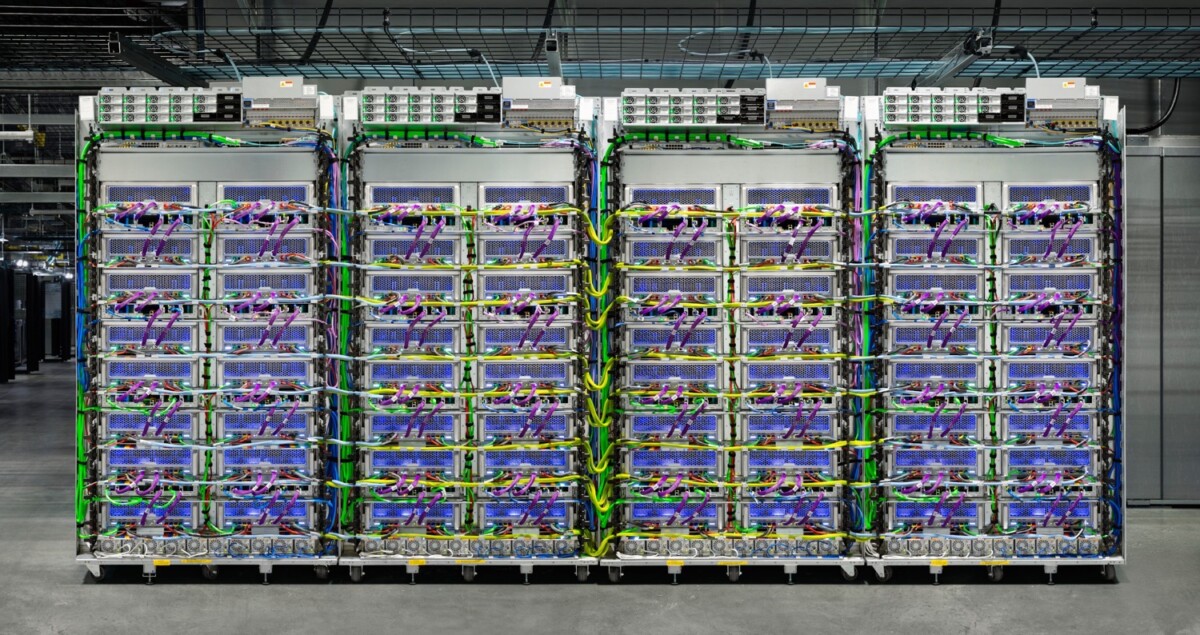Google is stepping up its game in the field of AI with the launch of its first ARM processor for its data centers. The firm wants to both free itself from dependence on Nvidia while competing with Microsoft and Intel in the cloud.
Google today unveiled its first processor based on ARM architecture for data centers specializing in AI-related calculations. The chip, named Axion, will allow Google to depend ever less on manufacturers like Intel, AMD and Nvidia for its data centers.
Google’s first ARM processor for the Cloud
For almost 10 years, Google has been offering its own accelerators specialized in machine learning applications, TPUs, for Tensor Processing Unit. This new processor arrives as an evolution of these integrated circuits in their v5p version, which are currently being deployed and will be able to contain no less than 8,960 chips in a single module, for raw performance doubled compared to the previous generation.

Axion is already operated internally by Google to support the infrastructure of YouTube Ads, Google Earth, but also its search engine with increasingly integrated AI functionalities. Overall, the firm has deployed more than 50,000 TPUs worldwide, in particular to operate its Gemini AI which is about to be massively deployed on Android smartphones.
The chip will not, however, be available for purchase for its customers, but rather its Google Cloud TPU service which helps accelerate “ all AI workloads, from training to inference », Like its competitors like Amazon and Microsoft. Last year, Microsoft unveiled a chip of the same caliber, also based on the ARM architecture and designed in collaboration with OpenAI.
50% more efficient than Intel and AMD
In its press release, Google announces a chip “ 30% more efficient than multi-purpose ARM chips ” and especially ” 50% more performance » than Intel and AMD processors based on the x86 architecture.
In this area, Nvidia still remains largely the leader with more than 80% market share in the sale of AI chips to its customers around the world. But for Google, it is not a competition: “I consider that it is a basis for increasing the size of the pie” according to the words of Amin Vahdat, vice-president of Google, relayed by the Wall Street Journal.
It now remains to be seen to what extent the work on this chip will also enrich its general public offering, while we know that the Tensor G5 will be the first SoC designed entirely by Google for its Pixel 10 smartphones. In the meantime, these are like d Usually Cloud customers will be able to benefit from the firm’s first ARM processor this year.
Want to find the best Frandroid articles on Google News? You can follow Frandroid on Google News in one click.
